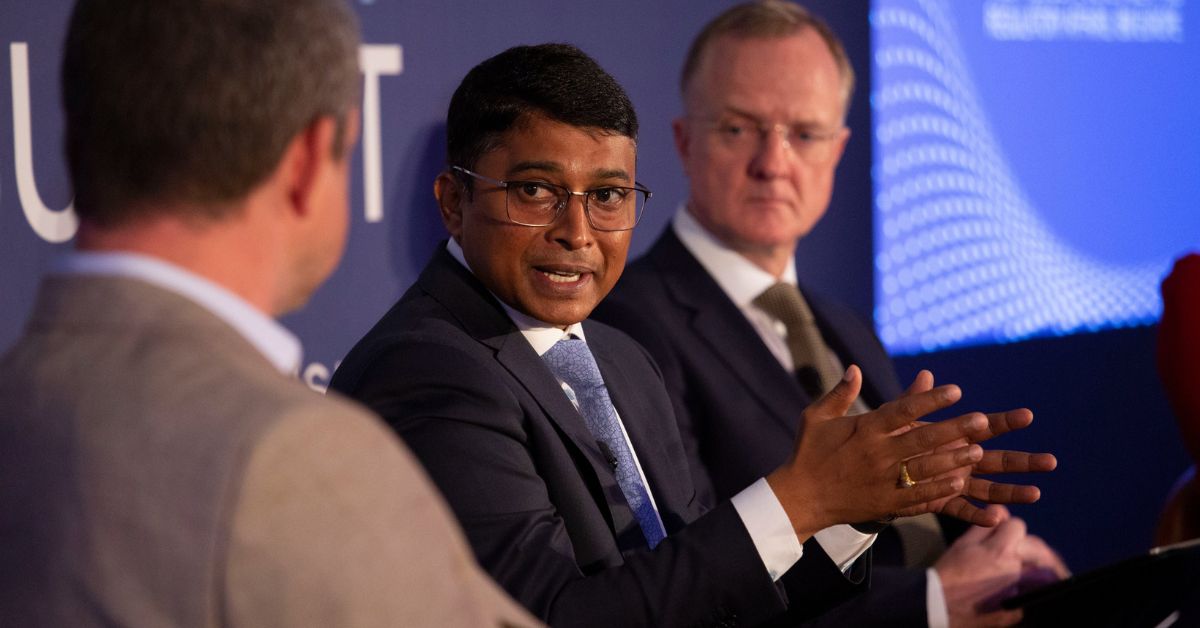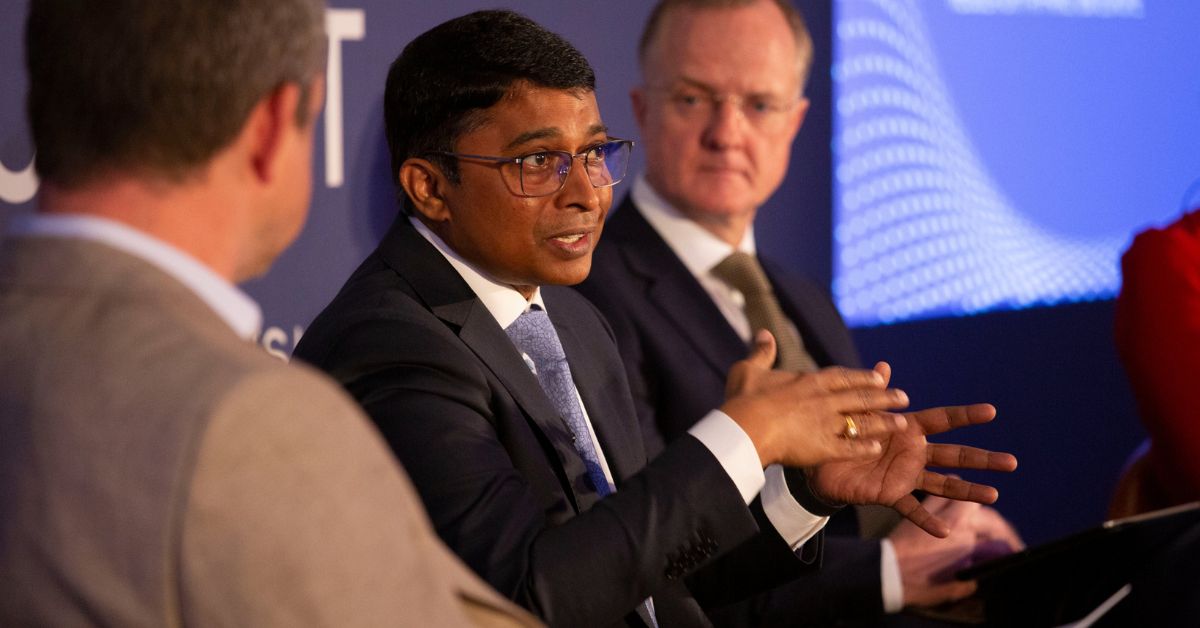DAVOS — Industries are increasingly investing in transformative technologies, including cybersecurity, sustainable solutions, digital transformation, and particularly artificial intelligence (AI), Sapthagiri Chapalapalli, Head of Tata Consultancy Services (TCS) in Europe, told TRENDS on the sidelines of the recently concluded Davos 2024.
During the interview, Chapalapalli provided insights into the diversity dynamics across the European continent. He highlighted the unique opportunities in the Nordics and the tech-savvy environments of Belgium, Netherlands, Luxembourg, Germany, France, and Switzerland, extending to Southern Europe. Chapalapalli emphasized the importance of understanding the nuances of these regions to successfully navigate their markets.
He navigated through the complexities of operating amidst geopolitical strains and economic slowdowns, especially in Germany, showcasing TCS’s resilience and optimism through robust project flow, efficiency, and innovation.
Reflecting on the achievements of 2023, Chapalapalli noted that TCS performed significantly better than expected, making huge strides in cybersecurity, sustainability, digital transformation, and AI. These efforts underscore TCS’s commitment to leveraging technology for efficiency and future readiness, setting a benchmark for its peers in the industry.
Industries are increasingly investing in transformative technologies, including cybersecurity, sustainable solutions, digital transformation, and particularly artificial intelligence (AI).
Sapthagiri Chapalapalli, Head of TCS in Europe
The geographical performance of TCS varied, with bright spots in Benelux and France and moderate performance in other regions. This diverse geographical footprint highlights TCS’s capability to manage different economic landscapes across Europe, allowing it to innovate under varying circumstances.
Chapalapalli stressed the company’s proactive approach in building reference architectures and industry-specific AI use cases, positioning TCS as a leader in designing tomorrow’s technology.

Chapalapalli also addressed the broader context of global AI development, highlighting India’s emerging position in the AI landscape. Despite the fact that major language models have not originated from India, TCS’s development of tools like ignio has positioned the company as a significant player in the AI domain. Chapalapalli emphasized the critical role of industry understanding and strategic alliances in driving AI adoption, positioning TCS at the forefront of the global technology ecosystem.
Addressing concerns related to AI and employment, Chapalapalli argued that the integration of AI with the human workforce is expected to lead to job creation rather than job loss. This perspective is supported by global surveys and reflects TCS’s confidence in the synergistic potential of AI and human collaboration to enhance productivity and the quality of work.
The conversation also ventured into the challenges posed by regulatory environments, particularly referencing the EU AI Act and the constraints it places on innovation within regulatory frameworks.
Chapalapalli further discussed TCS’s strategies for inorganic growth, emphasizing the importance of mobility for Indian tech workers in Europe. He suggested that a deeper understanding of work environments and personal nuances by Indian global executives could lead to the development of more attractive mobility plans for the workforce.








